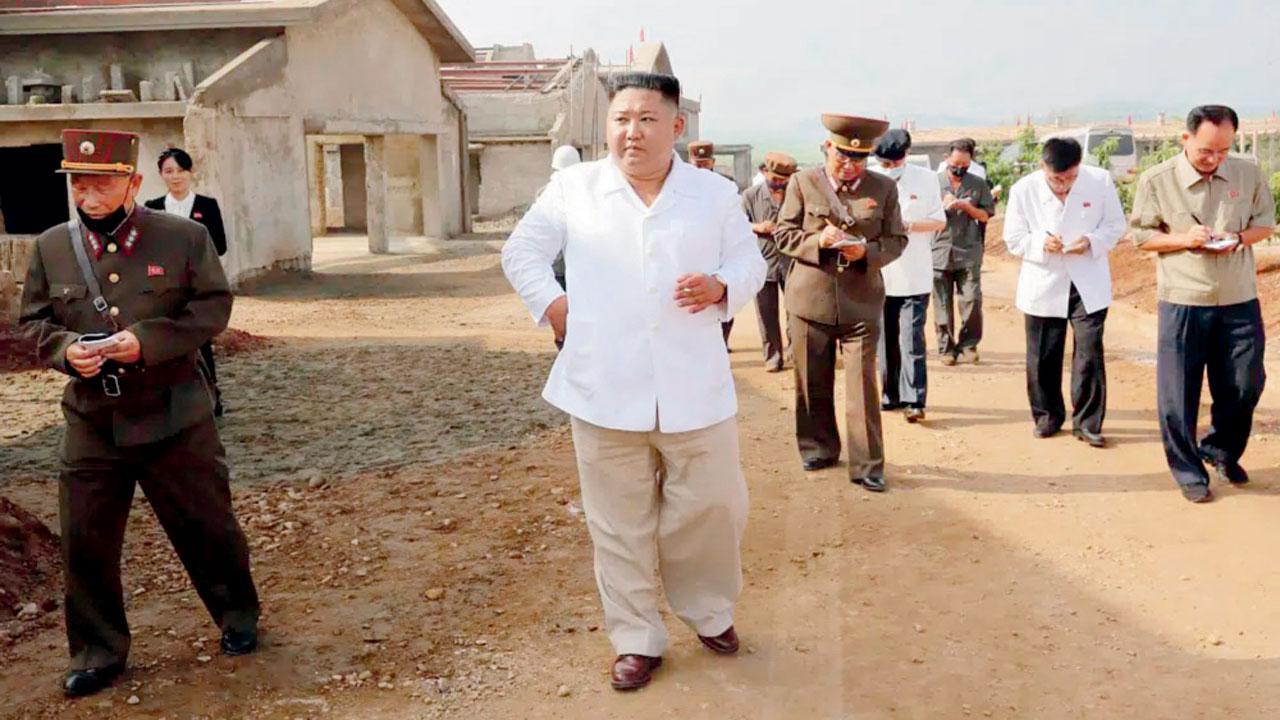Unconfirmed reports say an unspecified number of North Koreans have been dying of hunger

In this photo provided on July 23, 2020 by the North Korean government, North Korean leader Kim Jong Un visits a new chicken farm being built in Hwangju County, North Korea. Pic/AP
There’s little doubt that North Korea’s chronic food shortages worsened due to the Covid-19 pandemic, and speculation about the country’s food insecurity has flared as its top leaders prepare to discuss the “very important and urgent task” of formulating a correct agricultural policy.
ADVERTISEMENT
Unconfirmed reports say an unspecified number of North Koreans have been dying of hunger. But experts say there is no sign of mass deaths or famine. They say the upcoming ruling Workers’ Party meeting is likely intended to shore up support for North Korean leader Kim Jong Un as he pushes ahead with his nuclear weapons program in defiance of intense US-led pressure and sanctions.
“Kim Jong Un can’t advance his nuclear programme stably if he fails to resolve the food problem fundamentally because public support would be shaken,” said Lim Eul-chul, a professor at Kyungnam University’s Institute for Far Eastern Studies in Seoul. “The meeting is being convened to solidify internal unity while pulling together ideas to address the food shortage.”
Also Read: North Korea calls UN chief's remarks on missile test 'unfair'
An enlarged plenary meeting of the Central Committee of the Workers’ Party is slated for late February. Its specific agenda is unknown, but the party’s powerful Politburo earlier said that “a turning point is needed to dynamically promote radical change in agricultural development.” The meeting will be the party’s first plenary session convened just to discuss agricultural issues, though they often are a key topic at broader conferences in North Korea. Raising grain output was one of 12 economic priorities the party adopted during a plenary meeting in December.
It is difficult to know the exact situation in the North, which kept its borders virtually closed during the pandemic. Food shortages and economic hardships have persisted since a famine killed an estimated hundreds of thousands of people in the mid-1990s.
This story has been sourced from a third party syndicated feed, agencies. Mid-day accepts no responsibility or liability for its dependability, trustworthiness, reliability and data of the text. Mid-day management/mid-day.com reserves the sole right to alter, delete or remove (without notice) the content in its absolute discretion for any reason whatsoever
 Subscribe today by clicking the link and stay updated with the latest news!" Click here!
Subscribe today by clicking the link and stay updated with the latest news!" Click here!







